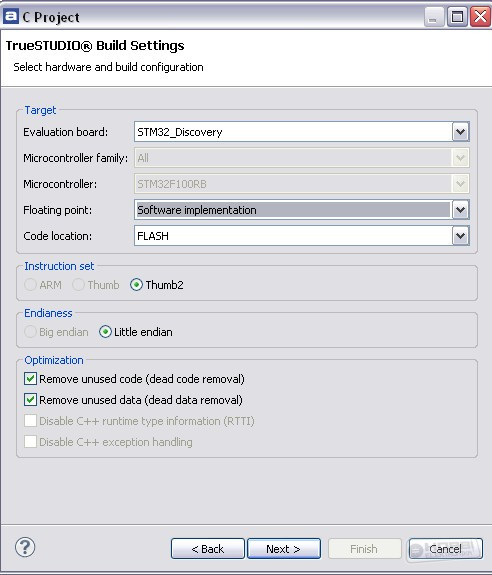
Get the Mentor Graphics - Sourcery CodeBench Lite Edition tool-chain. Mentor Graphics - Sourcery CodeBench Lite Edition Warning: Atollic tool-chain binaries are called arm-atollic-eabi-* instead of arm-none-eabi-*.

Note: The executable downloaded can be extracted like a zip archive and then only the tool-chain folder (PATH_WHERE_EXTRACT\$_OUTDIR\ARMTools) can be token and used as is. Get the Atollic - TrueSTUDIO for ARM Lite IDE that include tool-chain and gdb-server. Get the Linaro - GCC ARM Embedded tool-chain. Make sure the compiler collection binaries (arm-none-eabi-*) are available in PATH.Ī list of tool-chains tested, divided by Platform kind, is provided.Īll the arm tool-chains are similar (all originates from gcc) and probably will work just fine. Now that the operating system is correctly setup, a tool-chain is needed to compile the code.

Please refer to Developer Guide for detailed informations. Note: Developers interested in building documentation must have in PATH Doxygen, LaTeX and ghost script tools. Note: For Cygwin: there is no need to install everything, select only the basic, developer and library parts.Īfter choosing the preferred package, make sure the above commands are available in PATH.

Therefore a version of GNU make.exe for Windows is necessary.įurthermore some other Unix Tools are necessary to correctly execute all the operations defined in Makefiles:įor these reasons a more complete Unix Tools Package for Windows is suggested.

Haptic applications and the library (including this documentation) are compiled using the provided Makefiles (refer to No IDE paragraph for explanations). Here is explained how to setup the development environment in different configurations using Windows Operating System.īefore start using HapticLib you need to correctly prepare the system. Note: This page is directed to developers of haptic applications on embedded platforms.


 0 kommentar(er)
0 kommentar(er)
